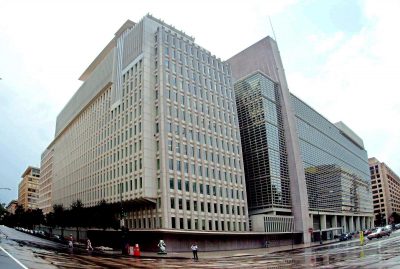The World Bank will support Nigeria with $611 million dollars to get children back to school under the Better Education Service Delivery for All (BESDA) programme, the Coordinator, Prof. Gidado Tahir, has said.
Tahir made this known in Kaduna on Friday at a meeting with officials of Kaduna State Universal Basic Education Board (SUBEB), on modalities for the implementation of the programme.
The BESDA national coordinator explained that the project is being supported by the World Bank to tackle the problem of out-of-school children in the country.
According to him, the alarming rate of out-of-school children has remained a worrisome phenomenon in the country that must be addressed.
“Whenever you attend international conferences and conventions, Nigeria is being described as one of the top nations with huge number of out-of-school children.
“The Federal Ministry of Education therefore decided to make the issue one of its top priority areas to find a way of tackling the issue.
“This attracted the World Bank who accepted to provide the Nigerian Government with $611 million dollars to implement BESDA in line with Universal Basic Education Commission programme.
“UBEC is focusing on increasing access, quality and ensuring equity; BESDA is also tailoring its attention towards doing that, but specifically focusing more on out-of-school children,” Tahir said.
He explained that BESDA would essentially focus on increasing access for out-of-school children and ensuring that children who attend school could read, write and manipulate figures.
The coordinator added that another basic objective of the programme was to strengthen accountability in the school system which has been very week over the years.
He said that 17 states with the highest number of out-of-school children in the country would participate in the programme.
The states include Adamawa, Bauchi, Borno, Gombe, Taraba, Yobe, Jigawa, Kaduna, Kano, Katsina, Kebbi, Sokoto, Zamfara, Niger, Ebonyi, Rivers, and Oyo.
According to Tahir, the states have more than 30 per cent of their school-age children out of school.
Also speaking, Malam Iro Umar of UBEC Coordination Support Team, explained that the meeting was organised for Kaduna SUBEB as implementing partner to understand the processes involved in the implementation of the programme.
“We are here to share with you the processes involved so that we will all understand what needs to be done before implementation of the programme begins.
“At the end of the meeting, every participating agency and individual would know what BESDA is and what their responsibilities are in the course of the implementation of the programme, “he added.
Umar said that out of the $611 million dollars, $578 million would be expended on Programme for Result (P for R) and $33 million on Technical Assistance (TA).
He explained that under the P for R, states would be rewarded for result achieved within a given period based on the number of out-of-school children they were able to return or enrol in school by gender.
On the technical assistance component, Umar said that $33 million dollars would be spent on various activities to strengthen the capacity of Federal and State government officials to improve monitoring and evaluation as well as data evaluation.
“The component will also increase effectiveness and transparency in UBE programme management and strengthen intergovernmental coordination in areas of policy formulation, strategic planning and monitoring of UBE programme implementation.
“Design and implementation of national learning assessment and a research agenda to inform UBE programme implementation and provide the analytical underpinning for future initiatives focused on out-of-school children.
“This would greatly improve the quality of basic education, “he added.
Earlier, Nasiru Umar, Executive Chairman, Kaduna SUBEB, thanked the Federal Government and UBEC for including Kaduna State as a participating state in the programme.
According to him, the programme will go a long way in helping the state to get over 700,000 out-of-school children back to school. (NAN)

